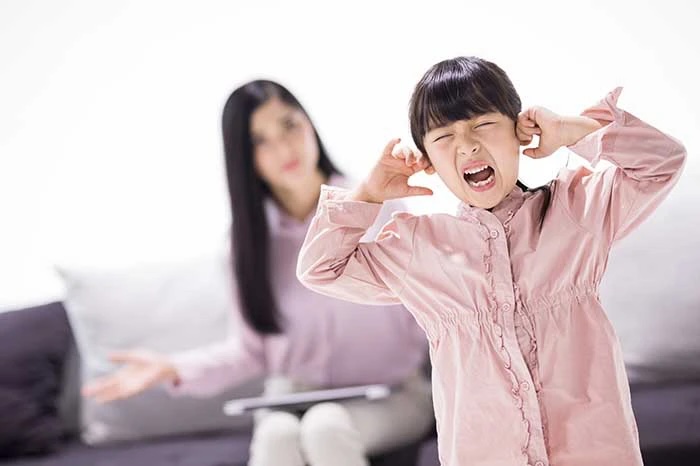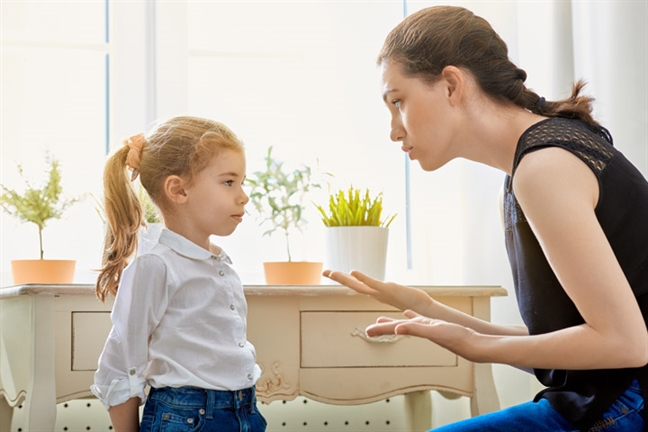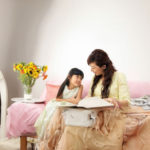Rise above and point to the child’s face
Actually, standing higher or sitting lower than the child is not the best way to calm the child’s emotions, especially when accompanied by gestures like pointing to the child’s face.
A better approach is to position yourself at the same eye level as the child, which helps reduce tension and make the child more willing to listen to you. You should try to sit down or help the child sit higher so that your eyes can meet, thereby creating a better communication space.

Scold more when the child covers their ears, resists, or fights back…
When the child raises their hand to cover their ears, acts stubborn, or even shows resistance by fighting back, continuing to scold often does not yield results. According to studies on child psychology, these are signs that the conversation or argument needs to be paused as there is no longer harmony in the exchange. It is best to let the situation ‘calm down’. Like fire needs oxygen to burn, if you don’t ‘add oxygen’, the fire will go out when it consumes all the fuel.
In this case, you should give the child a quiet space to think for themselves, stop all arguments, maintain a serious expression, and not react to the child’s behavior. You can take the child to a ‘Time-out’ area or ask the child to go there themselves.
Allow yourself some relaxation time with a cup of tea or coffee, and set aside time for that ‘quiet period’. If the child is too mischievous or crying when you are carrying them, you can put the child down on the bed or ask someone else to carry the child, and you take a rest. Sometimes, the subsequent silence can lead to unexpected results.

Always pick up the toys the child throws, even food when they are angry
Frequently picking up objects that the child throws, including food, when they are angry may not be the best response. Because young children have not yet fully developed their cognitive abilities, they cannot understand the consequences of throwing objects. However, stopping yourself from picking up the objects the child throws can be a simple solution to correct this behavior. If the mother keeps picking up things every time the child throws, the child will feel that the action brings joy, turning it into a game.
Child psychologists recommend that you maintain a calm attitude and don’t have to immediately pick up objects every time the child throws them. If the behavior is causing trouble, such as throwing fragile objects, you only need to respond seriously: “No, throwing is not allowed, Mom does not like that.” Then, you should continue with your work or pause for a moment before interacting with the child as usual without arguing or scolding.
When the child has calmed down, you can suggest a new game: “Arrange toys in the paper box.” This should be done within 24 hours after the incident. When the child participates in this activity with you a few times, they will start to feel tired of the game and gradually give up the behavior of throwing objects.

Pulling the child up when they lie down and cry
Children often lie down and cry when they feel stubborn, and this can happen anywhere, including public places like supermarkets. Justin Baldoni, an American actor and director, once dealt with a similar situation with his daughter calmly, by standing and waiting for her to finish crying instead of rushing to remove her from the situation. He followed the example of his own father, who patiently waited for him to overcome anger instead of feeling ashamed of that action.
Child psychology experts advise parents not to try to pull the child up when they are furious and “throw” their emotions onto the floor. Instead, wait for one to two minutes for the child to express their emotions. Once the emotions have been expressed, parents can sit down near the child on the floor and gently offer help to stand up, ready to have a conversation and resolve the issue.





































